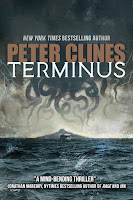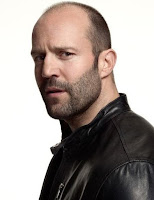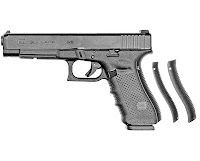This is something I’ve talked about several times here on the ol’ ranty writing blog, but I realized I haven’t talked specifically about it in, well, many years. Too many years, really. Definitely not since I’ve tried to lean away from the more ranty, accusatory tone I tended to write in back at the start of this.
Look, reading all those movie scripts made me pull out a lot of hair.
I talked a month or so back about the idea of a contract between author and reader. There’s one other aspect to that contract, a sub clause, and I think it’s one of those “so obvious we don’t think about it” sort of things. To be blunt, nobody’s picking up one of my books to hear from me. Or to see me.
I mean, sure, they like a lot of the characters and worlds I’ve created. Some folks probably (hopefully!) like my style enough that they’re willing to try something new from me. But they still don’t want to see me. They want the story, and they definitely don’t want me getting between them and it.
Now, this doesn’t mean I’m going to follow you home from the bookstore and stick my hand between you and the page or sing nonsense in your ear. It’s just that nobody wants me distracting them from the fact they’re reading my story. They just want to sink into that world and get lost.
Yeah, of course, on one level you know I crafted each of those sentences and paragraphs, chose where all
the breaks
should go, but we have this quiet understanding that I won’t be leaning over your shoulder asking “Did you like that? Did you see what I did there? Wasn’t that clever?” You just want to immerse yourself and forget about the world for a little bit. Or at least get to look at it from a neater angle.
That was jarring, wasn’t it? That weird paragraph break? It was only two lines, but it broke the flow for a second, and you stopped hearing my voice and started hearing your own instead. Probably saying something like “was that a mistake? Is he doing beat poetry? Was he trying to do something funny there?”
And this is the worst thing that can happen to a writer. I don’t want you thinking about me. I want you to be thinking about Hector and Natalie and the people they’re running away from. If you’re noticing me, thinking about what I’m doing… it means I’ve done something wrong.
Think of it this way. It’s the difference between the tough guy in a story who commits unimaginable acts of excessive violence to look tough… and the tough guy who doesn’t need to commit those acts. The one we understand is more impressive without seeing a blatant demonstration. Being able to restrain myself is usually more impressive than how excessive I can be. Less of us is more of the story.
So here’s four easy ways I can keep my literary head down.
Vocabulary— When I started out, I know I desperately wanted to show I had a better vocabulary than the average person. Because that’s a hallmark of a good writer, yes? I didn’t want to use common, pedestrian words, the words just anyone would use. I was a skilled anecdotist, after all, not some mere amanuensis.
And let’s be honest—I wasn’t alone. This is a phase a lot of us go through as we’re starting out. We latch onto (or more often, look up) obscure and flowery words for our literary masterpiece, as if we’re going to get a quarter every time the reader has to look something up. And if the reader doesn’t enjoy going to the Miriam-Webster site every three paragraphs? Well that sounds like their problem, doesn’t it? Not my fault you’ve got such a limited vocabulary.
Truth is, any word I choose just to get attention—to prove I don’t need to use a common word—is the wrong word. Any word that makes my reader stop reading and start analyzing from context is the wrong word. I can try to justify my word choice any way I like, but nobody’s picking up my book hoping for a vocabulary lesson. When a reader can’t figure out what’s being said for the fourth or fifth time and just decides to toss my manuscript in the big pile on the left… there’s only one person to blame.
(It’s not them, in case you had any lingering thoughts on the matter)
Structure— Just like obscure vocabulary, convoluted structure’s another common sign of writer ego. One of the most common forms of this is insisting on grammatical perfection. This usually mean a lot of rigid, formal text and very stiff dialogue. It’s when I get so insistent on proving I know the correct way to structure a sentence my words end up sounding forced and artificial. Also worth noting the flipside of this which is insisting I don’t need to follow any grammar or spelling conventions. Punctuation? Capitalization? Those are tired tropes for losers.
 The second most common sign is needless complication. I can admit I used to write—or try to write—sprawling, impenetrable prose. Sentences that went on and on. Descriptions that never ended. It took someone two pages to step through a doorway because we had to know what kind of socks and underwear they were wearing and what flavor toothpaste they preferred. If they were mentioned in the text, I had to remind you of these facts and how they were posed at the exact moment they spoke. Believe me, if something could be explained or described in less than ten words, I’d find a way to do it in at least fifty.
The second most common sign is needless complication. I can admit I used to write—or try to write—sprawling, impenetrable prose. Sentences that went on and on. Descriptions that never ended. It took someone two pages to step through a doorway because we had to know what kind of socks and underwear they were wearing and what flavor toothpaste they preferred. If they were mentioned in the text, I had to remind you of these facts and how they were posed at the exact moment they spoke. Believe me, if something could be explained or described in less than ten words, I’d find a way to do it in at least fifty.
And while I never got quite that bad, there are also some writers who choose arcane story structures or points of view or tenses. Just because they can. Things will go from non-linear first person musings to omniscient third person flashbacks to second person song lyrics and then to a telepathic gestalt mind that only speaks in one of those single, three page sentences I was just talking about. There’s nothing wrong with any of these things, in a general sense, but so often they’re not there to serve the story. It’s just an attempt to look cool and do cool things. If I want to do something like this, I should be able to explain why I’m doing it. And the explanation needs to better than “y’know… reasons,” or I’m just going to leave my readers confused and frustrated as they get knocked out of my story again and again.
Said—Sad admission, kind of going with the vocabulary point up above. For many, many years I didn’t use said. Said was, in my opinion, the lowest common denominator of dialogue descriptors. It’s the kind of word used by writers who weren’t going places, writers not destined for greatness, like I clearly was. Not only that, I’d try to never us the same descriptor on a page twice. So in my early work my characters would respond, retort, exclaim, demand, muse, mutter, sneer, snap, shout, snarl, grumble, growl, whimper, whisper, hiss, yelp, yell, exclaim, or ejaculate.
Oh, grow up. It was a common dialogue descriptor for years. Really.
Of course, once I finally got to sit down and talk with a professional editor and show him a few pages, this was the very first thing he commented on. Truth is, nobody notices said on the page. It’s an invisible word. Yeah, of course there’s going to be times when my characters are hissing or shouting or gasping. But I should save those words for then so their impact hasn’t been used up and weakened. The vast majority of the time… stick to said.
Names—If used in moderation, names are also invisible. If you think about it, they’re just a shorthand note for the mental image of my character or MacGuffin or whatever. And they help us keep things straight if I’ve got a bunch of people all talking together.
 It’s worth mentioning many fledgling sci-fi or fantasy writers feel the need to rename a lot of things. Or everything. Characters have all-new, correct-for-this-world names and so do their pets. And their gods. And their elements. And their system of weights and measures, their money, their units of time… It’s great worldbuilding, but I’d guess 83% of the time this is just wasted words. My elaborate sci-fi empire won’t collapse if I call mind-to-mind communication telepathy, but it might if I keep calling it intralobeech, which, as we all know, is short for “intralobe speech.”
It’s worth mentioning many fledgling sci-fi or fantasy writers feel the need to rename a lot of things. Or everything. Characters have all-new, correct-for-this-world names and so do their pets. And their gods. And their elements. And their system of weights and measures, their money, their units of time… It’s great worldbuilding, but I’d guess 83% of the time this is just wasted words. My elaborate sci-fi empire won’t collapse if I call mind-to-mind communication telepathy, but it might if I keep calling it intralobeech, which, as we all know, is short for “intralobe speech.”
Which, as we all know, is telepathy.
Always remember that moderation is key. Even a simple name like Bob can stack up and get distracting really quick. Which is why the ancient ones created…
Pronouns–when those proper names start to stack up, we switch to pronouns. Just like names are shorthand for story elements, pronouns are shorthand for those names. When nouns start to clutter up my writing, they’re there to leap in and shoulder the weight. It’s how Hector becomes he, that mysterious island becomes there, and a Hudson Hornet becomes it.
The catch here is I need to make sure my pronouns are clear. No questions exceptionally clear, ‘cause the moment someone gets confused about which her I’m referring to, they’re going to stop reading my story and start studying the page. We’ve all had to do that, right? Feel our way though a paragraph so we’re clear who she is. Or work backwards through the dialogue, trying to figure out who’s speaking which lines. I’m always super-careful with pronouns, because I don’t want that happening to anyone in my books.
Again—pronouns good. Pronoun confusion—bad. And it’s a writing rule you can apply to real life.
So there they are. Four simple ways to keep our collective heads down so readers don’t see us standing there. Staring at them. Waiting to be noticed.
 Y’see, Timmy, every time I make my reader hesitate or pause just for a second, I’m breaking the flow of the story. I’m encouraging them to skim at best, put the book down at worst. My reader should forget they’re paging through the latest Peter Clines novel, hopefully forget they’re reading altogether. And the easiest way to make that happen is for them not to see the writing.
Y’see, Timmy, every time I make my reader hesitate or pause just for a second, I’m breaking the flow of the story. I’m encouraging them to skim at best, put the book down at worst. My reader should forget they’re paging through the latest Peter Clines novel, hopefully forget they’re reading altogether. And the easiest way to make that happen is for them not to see the writing.
It’s tempting to wave our arms and shout and try to get the reader to admit they can see us, but all this does is ruin things for everyone. It’s like Sherlock Holmes showing how he came to his amazing deductions or a magician explaining their greatest illusion. That moment is when the whole thing falls apart.
As writers, we need to go unnoticed. We want our characters to be seen and our dialogue to be heard, yeah. We want our action and passion and suspense to leave people breathless, absolutely.
But we’re just distractions.
Next time… hmmmmm. Not sure. I’m open to requests or suggestions if anyone has any. If not, I might tell you about a conversation I recently had with someone about getting published.
Until then… don’t let me see you writing.



